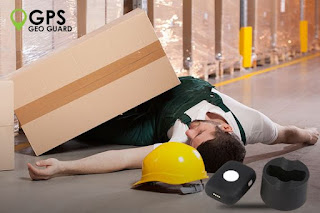Personal Duress Alarm FAQs: Know What You Need to Know
Today’s threats are rising
rapidly. A wireless commercial landscape means more workers do their job
remotely. To make things worse, incidents of terrorism and violence are growing
steadily too. It is challenging to have accurate and real-time information about
the whereabouts of your employees and what they are doing. That is why it is
difficult to know when a worker may be facing dangerous situations every
moment.
As a business leader,
you may face similar challenges. What steps should you take to counter these
negative trends? The answer lies in having a robust duress alarm system.
However, many enterprise clients do not know the purpose of investing in a lone worker safety solution. They have many questions regarding these high-risk
worker safety solutions.
In simple words, these
safety solutions will help your enterprise keep tabs on its workers and enable
them to connect with your business headquarters whenever required. Moreover,
some safety solutions are engineered to help you keep track of your worker’s
well-being as well. That is why duress alarms are one of the most valuable
assets for your organisation.
Now, here are some
common questions that most business leaders ask about duress alarm systems.
What is a personal duress alarm system?
The safety and health of your staff are integral to the success
of your business and the safety of your enterprise’s management infrastructure.
To that end, your business should invest in strengthening its security posture.
To help you get started, a personal duress alarm system steps into the picture.
Also known as lone worker alarms,
personal duress systems are simple and straightforward. These systems help
workers raise the alarm in times of crisis with the push of a button. Some of
the top-rated benefits of a personal duress system include having man-down
features, enabling continuous monitoring for specific locations and sounding
no-response alerts.
Who are the primary users of a duress alarm?
These alarm systems are meant for high-risk and insolated workers.
This category of workers is the primary user of these alarm systems. After all,
it is your — the employer’s — chief responsibility to keep your workforce safe.
As a matter of fact, it is a legal obligation to use personal alarm systems in
some places. But who all can be counted as an isolated or lone worker? An
isolated or lone working staff refers to someone who works all alone in a
remote area. If an emergency or accident occurs, the employees who are working
in remote locations will not be able to ask for help. That is why businesses
need to take proactive measures to make sure the safety and health of employees
are safeguarded.
What are the multiple benefits of using duress systems?
You may want to strengthen your security management infrastructure,
including monitoring essential components to improve staff security and
upholding necessary health protocols. These elements will help you strengthen
the safety of your management infrastructure — and you can find each of these
safety elements in a well-designed personal duress system. Here are some
concrete benefits of using a personal
duress alarm.
·
Maintaining a dependable communication channel that can remain
open and offer help during a crisis
·
Making sure that it is possible to geo-target incidents, no
matter when and where they happen
·
Building and upholding the first-responder accuracy to save the
lives of your lone workers
·
Empowering enterprise clients to cover all their legal
responsibilities to save the lives of employees
These factors make sure that you build a work ecosystem where
your lone workers can feel safe and effectively contribute to your business’s
productivity.
Finding a reliable
personal duress alarm system
At GPS Geo Guard, you
will find a wide array of lone worker alarms and enterprise-grade safety solutions. These
solutions are engineered to make sure high-risk workers can have peace of mind
whenever they are working in remote locations. Check out the complete
collection of duress
alarms and find the one that will help protect your people and build trust.




Comments
Post a Comment